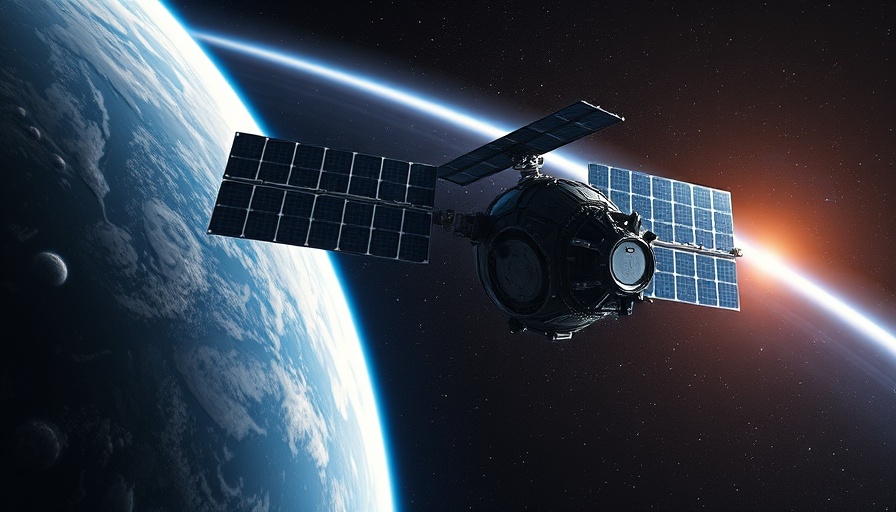
Revolutionizing Maritime Security with AI
In an era where technology is reshaping our world, a new alliance is set to enhance Europe’s maritime security. Ubotica, an innovative Irish startup, has joined forces with Fugro and DTACT from the Netherlands to create a groundbreaking intelligence platform. This initiative is designed to strengthen the security of critical underwater infrastructure like gas pipelines and subsea cables. The solution promises a comprehensive and real-time view of maritime activities, blending the strengths of AI-powered satellites, drones, and cybersecurity measures.
Understanding 'Space-to-Seabed' Surveillance
The advancement coined as 'space-to-seabed surveillance' leverages advanced data collection methods. Ubotica’s satellites will monitor the waters above, while Fugro’s array of drones and underwater vehicles gather data from below. This integrated approach not only enhances maritime awareness but also enhances response times to potential threats.
The Impact of Recent Events on Maritime Security
The partnership addresses a growing awareness of vulnerabilities in underwater facilities following incidents such as the 2022 Nord Stream pipeline sabotage. As European nations witness increased maritime tensions, particularly in response to Russian activities, the call for enhanced security measures has never been louder. Countries are now more determined to ensure that they can effectively monitor and protect their waters from covert attacks.
Building a Stronger Defense Framework
Fugro, with its extensive experience in offshore surveying, is well-positioned to provide the necessary insights for the platform. The collaboration is particularly focused on strategic areas like the North Sea and Baltic region, which are paramount for national security. The data collected will contribute significantly to what Fugro’s director, Ivar de Josselin de Jong, describes as “information-driven operations.” This ensures not just proactive monitoring but also informed decision-making for national security efforts.
What Lies Ahead for Maritime Technology?
As Europe increasingly prioritizes maritime defense technology, newer systems are undergoing trials across these critical waters. This includes tests of autonomous drones and innovative sensing technologies that promise to keep nations one step ahead of potential threats. The technological advancements not only signify a pivot toward modernization but also illustrate a significant shift in how governments approach surveillance and security in the maritime domain.
The ongoing developments underscore the importance of collaborative efforts among technology firms and governmental agencies. By harnessing the collective capabilities of AI, cybersecurity, and innovative engineering, these partnerships aim to fortify Europe's waters against evolving threats.
 Add Row
Add Row  Add
Add 




Write A Comment